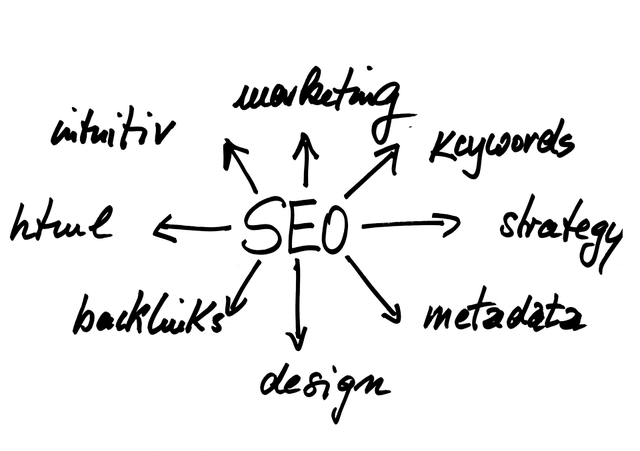In today's digital era, Technical SEO Training is a powerful asset for businesses aiming online success. It delves into complex data and advanced tools to uncover insights driving search engine visibility. Beyond keyword optimization, it covers website performance aspects like crawl errors, site speed, backlink profiles, and user behavior. By leveraging these analytics, businesses can make data-driven decisions, implement strategies, and enhance their online authority. Technical SEO Training equips professionals with the skills to interpret data, identify optimization opportunities, and overcome technical challenges, ultimately transforming websites into high-ranking digital assets.
In today’s digital landscape, understanding advanced SEO analytics is crucial for maximizing search engine visibility. This comprehensive guide delves into the key components of Advanced SEO Analytics, empowering businesses to unlock their online potential. From interpreting data through robust Technical SEO Training to mastering critical metrics and optimizing on-page content, this article offers actionable steps for success. We explore off-page strategies, local SEO targeting, and advanced competitor analysis techniques, providing a holistic approach to elevate your digital marketing efforts.
Understanding Advanced SEO Analytics: Unlocking Search Engine Visibility

In today’s digital landscape, understanding Advanced SEO Analytics is paramount for any business aiming to unlock its full potential online. It involves delving into intricate data sets and utilizing sophisticated tools to gain insights that drive search engine visibility. This isn’t just about optimizing keywords; it’s a comprehensive Technical SEO Training that encompasses every aspect of your website’s performance on search engines, from crawl errors and site speed to backlink profiles and user behavior.
By mastering Advanced SEO Analytics, businesses can identify areas where they’re falling short in the eyes of search engine algorithms and make data-driven decisions to rectify them. This could mean improving the technical infrastructure to enhance loading times, reworking content strategies to better align with user queries, or leveraging link-building tactics that build authority and credibility. The key lies in interpreting the data accurately, which requires a solid understanding of both SEO principles and analytical tools.
The Role of Technical SEO Training in Data Interpretation

Technical SEO training plays a pivotal role in equipping professionals with the skills needed to interpret complex data effectively. In the dynamic digital landscape, understanding and making sense of vast amounts of SEO-related information is essential for making informed decisions. This specialized training delves into the intricacies of site structure, indexing, and crawling, empowering individuals to navigate technical challenges that can hinder search engine optimization efforts.
By participating in comprehensive Technical SEO Training programs, practitioners gain hands-on experience in utilizing advanced analytics tools and techniques. They learn to extract meaningful insights from raw data, identify on-page and off-page optimization opportunities, and address issues like broken links, site speed problems, and mobile usability concerns. Through practical exercises and case studies, trainees develop a keen eye for detail and a strategic mindset, enabling them to transform complex technical SEO data into actionable strategies that drive search engine rankings and overall website performance.
Key Metrics to Master for Comprehensive Analysis

In the realm of Advanced SEO Analytics, mastering key metrics is akin to wielding a professional’s Technical SEO Training. These aren’t just numbers; they’re insights that navigate your digital strategy through the bustling landscape of online visibility. Top-tier analytics encompass a symphony of metrics, each offering a unique perspective on your website’s performance. Key among these are organic traffic, bounce rate, and average session duration – vital remnants of your site’s allure to visitors.
Understanding these metrics demands a strategic approach. Organic traffic reveals the effectiveness of your SEO efforts in attracting the right audience, while a high bounce rate might whisper about content that doesn’t resonate. Average session duration, on the other hand, indicates how captivated users are by your digital offerings. By delving into these numbers, you can identify areas for improvement, much like deciphering an enigma, and subsequently, optimize your site to become a true game changer in the online arena.
On-Page Optimization: Enhancing Content with Tools

On-Page optimization is a critical component of Advanced SEO Analytics, and it involves enhancing content to improve both user experience and search engine rankings. With the right tools, marketers can ensure their content is optimized for relevant keywords while maintaining readability and engagement. Technical SEO Training equips professionals with the knowledge to utilize these tools effectively.
By employing keyword research tools, site audit software, and content analytics platforms, experts can identify high-value keywords, fix technical issues hindering visibility, and create content that resonates with both search engines and audiences. These tools provide insights into page performance, allowing for data-driven decisions that refine content strategy and boost SEO effectiveness.
Off-Page Strategies and Link Building Insights

In the realm of Advanced SEO Analytics, off-page strategies play a pivotal role in enhancing search engine visibility. Link building remains a cornerstone of this strategy, as high-quality backlinks from reputable sources significantly boost a website’s authority and ranking. A robust Technical SEO Training program should equip professionals with insights into effective link-building tactics, such as identifying relevant anchor text, cultivating relationships with influencers, and leveraging guest blogging to earn valuable backlinks.
Understanding the dynamics of off-page SEO involves recognizing that search engines like Google use backlinks as a gauge of a website’s relevance and popularity. By focusing on building strategic alliances with industry leaders and creating compelling content that naturally attracts links, digital marketers can navigate the complex landscape of link building successfully. This approach not only enhances search rankings but also fosters organic growth by increasing brand awareness and driving targeted traffic to the site.
Local SEO: Targeting Geographic Audiences Effectively

Local SEO is a crucial aspect of Advanced SEO Analytics, especially for businesses aiming to attract customers from specific geographic locations. By leveraging technical SEO training and strategies, marketers can effectively target and engage local audiences. Understanding your target market’s demographics and online behavior within their region is key to success. This involves optimizing website content, titles, and meta descriptions with location-specific keywords to improve visibility in local search results.
Implementing robust Local SEO practices ensures that businesses appear when potential customers conduct searches related to their services or products within a certain area. It’s about creating a connection between the business, its offerings, and the local community it serves, fostering trust and encouraging foot traffic or online conversions.
Advanced Techniques for Competitor Analysis

In the realm of Advanced SEO Analytics, understanding your competitors is paramount. By utilizing advanced techniques, businesses can gain a strategic edge. This involves in-depth keyword analysis to identify high-value keywords that competitors are ranking for but you’re not. Tools like SEMrush and Ahrefs offer comprehensive competitor insights, allowing for a detailed breakdown of their backlink profiles, content strategies, and on-page optimizations.
These technical SEO training tools empower marketers to uncover hidden opportunities. For instance, identifying gaps in your competitor’s content or understanding their successful link-building tactics can inform your own SEO strategy. This competitive analysis is crucial for refining your approach, ensuring you stay ahead in the digital landscape.
Actionable Steps Post Data Interpretation

After interpreting data from advanced SEO analytics tools, the next crucial step is translating this information into actionable steps for improvement. This involves delving into specific areas that require attention, such as keyword performance, user behavior, and site speed. For instance, if your analysis reveals a significant drop in organic traffic from a particular region, it might be worth exploring technical SEO training to optimize regional targeting and improve local search rankings.
Focus on addressing issues that directly impact user experience and search engine visibility. This could include fixing broken links, optimizing meta tags, enhancing mobile responsiveness, or implementing schema markup. By taking these actionable measures, businesses can ensure their websites are not only aligned with current SEO best practices but also provide a seamless and engaging user journey, ultimately boosting online visibility and driving better results in the long term.
